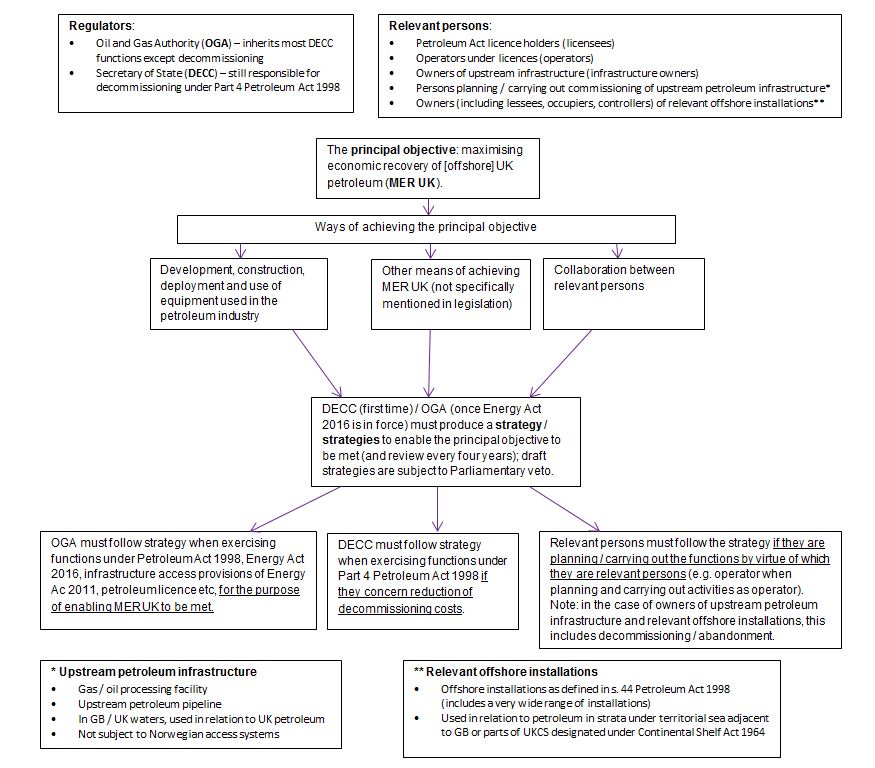This is the second in a series of posts on the new regulatory regime for the North Sea oil and gas industry following the enactment of the Energy Act 2016. In the first post we introduced the new regime. Here, we look at how its central legal provisions work.
At the heart of the new regime is the concept of “MER UK”. This is short-hand for the “principal objective” of “maximising the economic recovery of [offshore] UK petroleum”, which is set out in s. 9A of the Petroleum Act 1998 (inserted by the Infrastructure Act 2015). The way that the principal objective governs both the regulators and those they regulate is summarised below.
Two points are worth emphasising here.
First, obligations to act in accordance with the MER UK strategy apply to a very broad range of persons engaged in a very broad range of activities – the summary above slightly understates this. It does not, for example, have room to list all the categories of offshore installation (e.g. gas storage or accommodation facilities) that are covered.
Second, the key obligations in the legislation refer to the MER UK strategy, rather than the principal objective itself. This gives DECC (for now) and the OGA (in the future) great flexibility to articulate the practical implications of the principal objective, and to do so in a document that, although it is legally binding, does not have to be (and is not) written with the precision that one would expect to find in legislative drafting.
The position in practice could almost be caricatured as being “you must do what the OGA says you must do to achieve MER UK”. Courts would probably be reluctant to second-guess the range of factors contributing to an assessment of MER UK in any event, but this feels like a regime which has been very carefully set up with a view to minimizing the risk of administrative law challenges to the regulator’s decisions.
NOTE: The Energy Act 2016 is being commenced in stages, by regulations. The first commencement regulations were made on 23 May 2016. So far, only provisions which empower the Secretary of State to make further regulations or transfer schemes (e.g. relating to the transfer of property from DECC to OGA) have been made. However, the substantive obligations on “relevant persons” and DECC / OGA described above are largely contained in the provisions which the Infrastructure Act 2015 inserted into the Petroleum Act 1998 with effect from 12 April 2015 (even though the MER UK strategy itself was not finalized until almost a year later).
So although it may be a few months before the sections of the Energy Act 2016 that will allow enforcement of MER UK obligations are brought into force by further commencement regulations, the substantive obligations to comply with MER UK principles are already in force and should be kept in mind by relevant persons (and DECC / OGA) in all the situations where they apply. The next post in this series will explore some of these situations, with particular emphasis on exploration activities.


